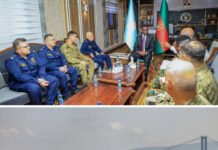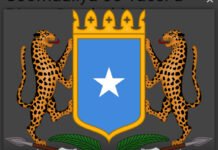Doha – The city of Doha hosted a high-level ministerial meeting of the Contact Group on Somalia under the Organization of Islamic Cooperation (OIC), with participants focusing on strengthening international support for Somalia’s security, development, and long-term stability.
Qatar’s Minister of State for Foreign Affairs, Sultan bin Saad Al-Muraikhi, opened the meeting by emphasizing that hosting the event in Doha reflects a shared commitment to supporting Somalia and its people on their journey toward peace and progress.
Al-Muraikhi highlighted the growing challenges Somalia faces, including threats to its security, sovereignty, stability, and economic recovery. He stressed the urgent need for the international community to coordinate and intensify their efforts in support of Somalia’s national roadmap.
The minister reiterated that respecting Somalia’s sovereignty and territorial integrity is a non-negotiable principle and must remain at the core of all international engagement.
He called for the acceleration of an inclusive national reconciliation process based on open dialogue among all domestic stakeholders, to reduce divisions and build credible, cooperative state institutions.
Al-Muraikhi also pointed out that political reforms form the backbone of Somalia’s state-building and stability. These include preparations for national elections, completion of the provisional constitution, and the establishment of transparent and democratic institutions.
He underscored the importance of an inclusive process involving the federal government, regional states, civil society, women, youth, and grassroots organizations—ensuring broad representation and a sustainable, nationally agreed-upon solution.
The minister stressed that international efforts must reinforce—not replace—the Somali-led political process, while respecting Somalia’s independence and decision-making authority.
He affirmed that Qatar remains committed to providing humanitarian, development, and relief support—either directly or in partnership with UN agencies and international organizations—to alleviate the suffering of the Somali people.
In conclusion, Al-Muraikhi called for stronger international coordination and greater impact in supporting Somalia, ensuring that all aid aligns with priorities set by the Somali government.





